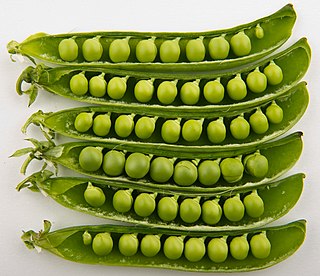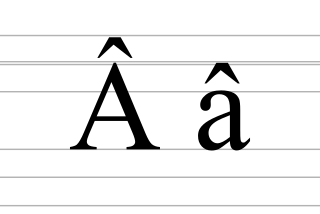Related Research Articles

A backronym is an acronym formed from an already existing word by expanding its letters into the words of a phrase. Backronyms may be invented with either serious or humorous intent, or they may be a type of false etymology or folk etymology. The word is a portmanteau of back and acronym.
In linguistics, a mass noun, uncountable noun, non-count noun, uncount noun, or just uncountable, is a noun with the syntactic property that any quantity of it is treated as an undifferentiated unit, rather than as something with discrete elements. Non-count nouns are distinguished from count nouns.
In linguistics, grammatical number is a feature of nouns, pronouns, adjectives and verb agreement that expresses count distinctions. English and other languages present number categories of singular or plural, both of which are cited by using the hash sign (#) or by the numero signs "No." and "Nos." respectively. Some languages also have a dual, trial and paucal number or other arrangements.

English plurals include the plural forms of English nouns and English determiners. This article discusses the variety of ways in which English plurals are formed from the corresponding singular forms, as well as various issues concerning the usage of singulars and plurals in English. For plurals of pronouns, see English personal pronouns.
The apostrophe is a punctuation mark, and sometimes a diacritical mark, in languages that use the Latin alphabet and some other alphabets. In English, the apostrophe is used for three basic purposes:

Pea is a pulse, vegetable or fodder crop, but the word often refers to the seed or sometimes the pod of this flowering plant species, formerly 'Pisum sativum', it has been proposed to rename the species as Lathyrus oleraceus based on the work of Schaefer et al. (2012). Each pod contains several seeds (peas), which can have green or yellow cotyledons when mature. Botanically, pea pods are fruit, since they contain seeds and develop from the ovary of a (pea) flower. The name is also used to describe other edible seeds from the Fabaceae such as the pigeon pea, the cowpea, the seeds from several species of Lathyrus and is used as a compound form for example Sturt's desert pea.
In linguistics, singulative number and collective number are terms used when the grammatical number for multiple items is the unmarked form of a noun, and the noun is specially marked to indicate a single item.
The grammar of the German language is quite similar to that of the other Germanic languages. Although some features of German grammar, such as the formation of some of the verb forms, resemble those of English, German grammar differs from that of English in that it has, among other things, cases and gender in nouns and a strict verb-second idea order in main clauses.

The word thou is a second-person singular pronoun in English. It is now largely archaic, having been replaced in most contexts by the word you, although it remains in use in parts of Northern England and in Scots. Thou is the nominative form; the oblique/objective form is thee ; the possessive is thy (adjective) or thine ; and the reflexive is thyself. When thou is the grammatical subject of a finite verb in the indicative mood, the verb form typically ends in -(e)st, but in some cases just -t. Some modern or dialect speakers of thou use thee as the subject and conjugate the word with is/was, e.g. thee is, thee was, thee has, thee shall. However this is not considered standard.

Â, â (a-circumflex) is a letter of the Inari Sami, Skolt Sami, Romanian, Vietnamese and Mizo alphabets. This letter also appears in French, Friulian, Frisian, Portuguese, Turkish, Walloon, and Welsh languages as a variant of the letter "a". It is included in some romanization systems for Khmer, Persian, Russian, and Ukrainian.
In Modern English, the word "you" is the second-person pronoun. It is grammatically plural, and was historically used only for the dative case, but in most modern dialects is used for all cases and numbers.
In Modern English, they is a third-person pronoun relating to a grammatical subject.
In linguistics, a word stem is a part of a word responsible for its lexical meaning. Typically, a stem remains unmodified during inflection with few exceptions due to apophony

Pease pudding, also known as pease porridge, is a savoury pudding dish made of boiled legumes, typically split yellow peas, with water, salt and spices, and often cooked with a bacon or ham joint. A common dish in the north-east of England, it is consumed to a lesser extent in the rest of Britain. In Newfoundland, it retains its traditional name as part of the customary Jiggs dinner. In non-English speaking countries, similar dishes exist under different names.
Resh is the twentieth letter of the Semitic abjads, including Phoenician rēš 𐤓, Hebrew rēš ר, Aramaic rēš 𐡓, Syriac rēš ܪ, and Arabic rāʾ ر. Its sound value is one of a number of rhotic consonants: usually or, but also or in Hebrew and North Mesopotamian Arabic.

"Pease Porridge Hot" or "Pease Pudding Hot" is a children's singing game and nursery rhyme. It has a Roud Folk Song Index number of 19631.
Pease, in Middle English, was a noun referring to the vegetable pea; see that article for its etymology. The word survives into modern English in pease pudding.

The articles in English are the definite article the and the indefinite articles a and an. They are the two most common determiners. The definite article is the default determiner when the speaker believes that the listener knows the identity of a common noun's referent. The indefinite article is the default determiner for other singular, countable, common nouns, while no determiner is the default for other common nouns. Other determiners are used to add semantic information such as amount, proximity, or possession.
In etymology, back-formation is the process or result of creating a new word via inflection, typically by removing or substituting actual or supposed affixes from a lexical item, in a way that expands the number of lexemes associated with the corresponding root word. The resulting is called a back-formation, a term coined by James Murray in 1889.

Pea soup or split pea soup is soup made typically from dried peas, such as the split pea. It is, with variations, a part of the cuisine of many cultures. It is most often greyish-green or yellow in color depending on the regional variety of peas used; all are cultivars of Pisum sativum.
References
- ↑ "pea", Online Etymology Dictionary, 2020-03-05, archived from the original on 2023-06-24, retrieved 2024-02-07
- ↑ "How a Mistake Gave Us the Word 'Cherry'", Merriam-Webster Word History, retrieved 2024-02-07